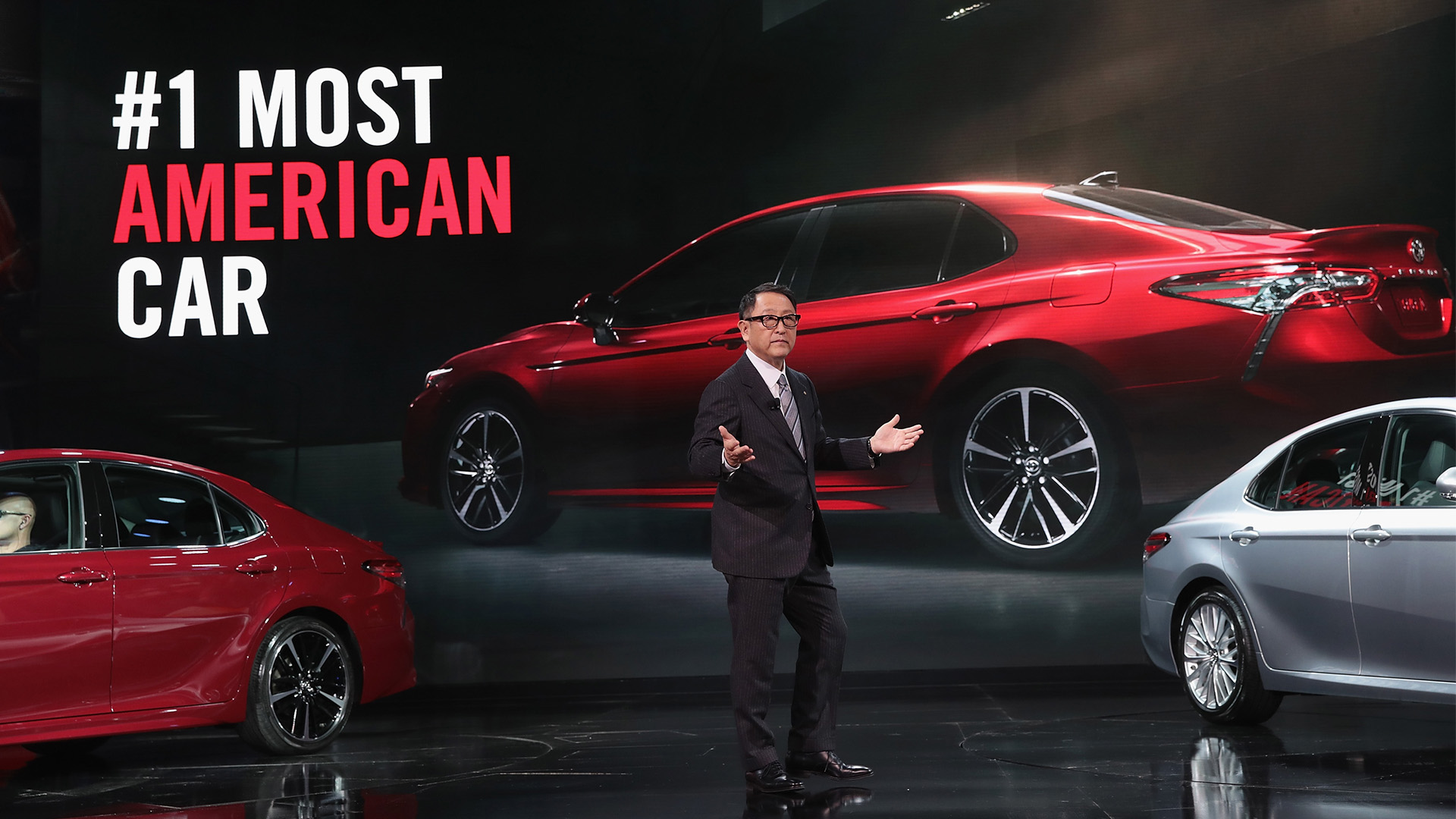

Manufacturers around the world are preparing themselves for U.S. President Donald Trump’s continued threats to impose higher duty fees on vehicles imported into the United States. In an unsurprising announcement by Toyota, the continued threat of looming tariffs could lead to more expensive cars for American consumers. According to a report by Reuters, the automaker issued a statement regarding the “big impact” tariffs would impose on the automaker’s bottom-line, and the company won’t be eating the entire cost.
Earlier this year, the Trump administration announced protectionism tariffs for imported aluminum and steel, forcing automakers that bring in foreign metals to reconsider just where their materials are sourced. Even foreign vehicles manufactured in the U.S. would be further affected by additional import tariffs, including the Camry, which is produced in Georgetown, Kentucky. Just under half of all Toyotas sold in the United States are manufactured at ten Toyota facilities within the nation’s borders.
“If we see a rise, it would raise the cost of locally produced vehicles by around $1,800 each, and increase costs for (models imported from Japan) by $6,000,” Masayoshi Shirayanagi, Toyota’s senior managing director, told reporters according to Reuters. “This would be a big impact.”
Since a large number of Toyota-produced vehicles are imported into the States from abroad, as many as 724,000 vehicles could be subject to the increased tariffs. Reuters estimates an additional $4.25 billion in additional overhead from tariffs alone. Despite posting record profits for the quarter, Toyota and its customers may soon be finding themselves in a tough position with the potential for a skyrocketing overhead on vehicles and auto parts.
Much like BMW’s actions overseas due to continued tariffs, other manufacturers are prepared to raise consumer-facing prices due to the increase in overhead costs for vehicles produced overseas. Automakers have notoriously opposed these tariffs, even going as far as to warn the U.S. government about the negative implications that could occur should the bottom line become unsustainable. Industry analysts have also weighed in on the subject, noting how the approach would only cost Americans more money and potentially even their jobs.
“This is not helping those blue-collar workers who voted for Trump,” Rebecca Lindland, senior analyst for Kelley Blue Book, told CNBC, “Renegotiating NAFTA is long overdue. But slapping tariffs on an inflexible industry is not protecting American jobs, American investors or American consumers.”
The automotive global superpowers have since been at a public standstill with the tariffs and with U.S. CAFE regulations proving to be in an unstable condition, the future direction of the auto industry is murky.